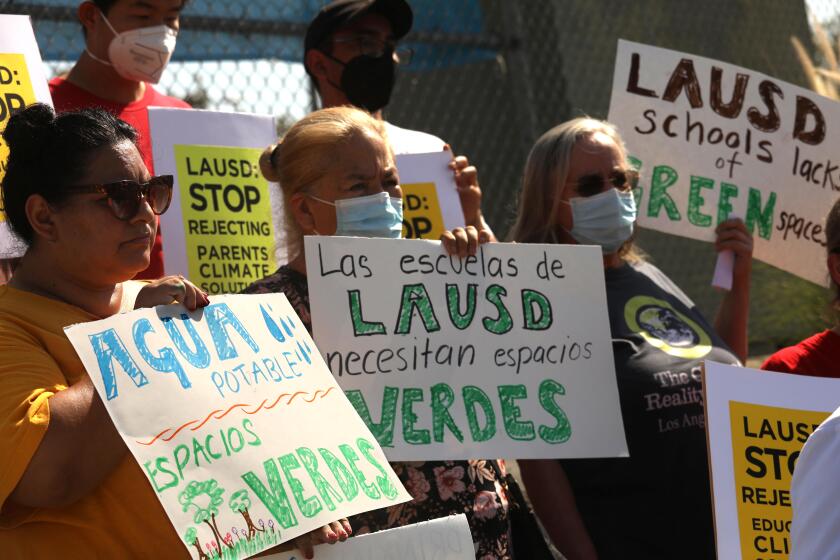Letters to the Editor: Newsom isn’t doing enough on water use. Blame the recall
- Share via
To the editor: Gov. Gavin Newsom’s response to the drought — asking but not requiring Californians to cut their water use by 15% — is being described as too little, late. Yet last year, he was willing to show leadership during the pandemic.
Newsom is acting like a politician trying to maintain high favorability so he can keep his job. California’s current situation is normal — we’ve seen droughts before — however, his political situation is not.
Thus we see the true costs of the irresponsible, pointless and distracting recall election.
Scientists see the need for Newsom to act like a strong leader, but a politically motivated recall effort effectively prevents him from doing that. This is a recall started by a conservative movement that is all too willing to score cheap points but unwilling to help the state.
Doug Walker, Ventura
..
To the editor: Water, water everywhere, and not one drop to spare?
As a West Hollywood resident, I’m often confused by drought headlines proclaiming impending disaster for California. In my neighborhood, and around Los Angeles, the hypocrisy is evident. Every day I see lush green lawns and vast amounts of runoff disappearing down sewers.
Methinks something is rotten in L.A., and probably every other California city.
Max Myers, Los Angeles
..
To the editor: It is absolutely critical for us to find the answer to, as UC Berkeley researcher Michael Kiparsky put it, the mystery of who in California owns water rights and how much they use.
Water rights are key, and data on them with regard to the Sacramento–San Joaquin River Delta watershed have been gathered. Extensive research by my organization found that more than five times the amount of water that is actually available has been allocated, a figure that has been corroborated by a separate UC Davis study.
To find the answer of exactly who gets California’s limited supply of water, the state needs to conduct a public trust analysis, in which policymakers assess all impacts of any project using our natural resources and bring all stakeholders, including advocates for the environment, to the table.
This analysis is required by law, but state water authorities have never done one. Now is the time to change that.
Carolee Krieger, Santa Barbara
The writer is president of the California Water Impact Network.
..
To the editor: Kiparsky writes, “Legal records for older rights — some dating from the 19th century but still binding today — are scattered in 58 county courthouses and repositories.” He adds, “Given the lack of data, it is immensely difficult to resolve conflicts or manage shortages.”
If ever there was a clarion call for a state water czar, this is it.
We need one person in charge of ensuring the state has enough water who is able to make decisions that transcend geographic boundaries, water district politics and partisan gridlock. Think of this person like the director of the FBI. With the appropriate checks and balances in place, a water czar could have similar powers in Sacramento.
We have a model in place that allows certain, key people to operate at a level unlike most everyone else. It is time California finds someone to be that person on water, which is key to our survival.
Denny Freidenrich, Laguna Beach
More to Read
A cure for the common opinion
Get thought-provoking perspectives with our weekly newsletter.
You may occasionally receive promotional content from the Los Angeles Times.









